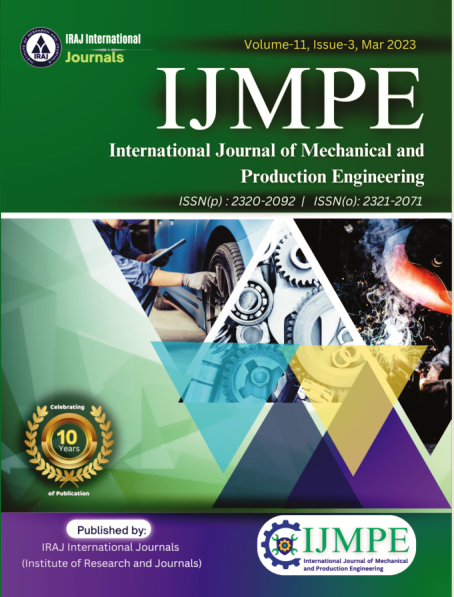Publish In |
International Journal of Mechanical and Production Engineering (IJMPE)-IJMPE |
 Journal Home Volume Issue |
||||||||
Issue |
Volume-8,Issue-8 ( Aug, 2020 ) | |||||||||
Paper Title |
Deep Learning for the Electricity Prediction in the Building based on the Technical Indicators | |||||||||
Author Name |
Gaurav, Ho Chang, Wen-Shing Lee | |||||||||
Affilition |
Department of Mechatronics Engineering, National Taipei University of Technology, Taipei, Taiwan Department Of Mechanical Engineering and Graduate Institute of Manufacturing Technology, National Taipei University of Technology, Taipei 10608, Taiwan Research Center of Energy Conservation for New Generation of Residential, Commercial, and Industrial Sectors. National Taipei University of Technology, 1, Section 3, Zhongxiao E. Rd., Taipei, Taiwan, ROC. | |||||||||
Pages |
15-20 | |||||||||
Abstract |
The electricity consumption is increasing in an exponential manner during the last few years. This increase leads to huge burden amongst the electricity distributors. Thus, prediction of future demand for consuming electricity offers an upper hand to the distributor of electricity. Forecasting the consumption of electricity needs several attributes. This research presents a deep long short term memory (Deep LSTM) for computing the energy usage in the buildings. An optimal way to perform the building energy prediction is to use the time-series data, as the Deep LSTM classifier is to provide effective performance using the obtained time-series data. Here, the networks consider the time-series data for predicting the future consumption of electricity. Moreover, the technical indicators, like Momentum (MOM), Rate of change (ROC), and Triple Exponential Moving Average (TRIX) is adapted for extracting the imperative features that can be employed for making the prediction. The model is tested using the real-time dataset considering time-series data for predicting the electricity consumption in each building. The Deep LSTM network outperformed other methods with minimal MSE of 0.114 and RMSE of 0.338 respectively. Keywords - Electricity Prediction, Deep Learning, Technical Indicators, Energy Consumption, Time-Series Data | |||||||||
| View Paper | ||||||||||